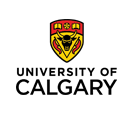
Michael Weinstock—architect and director of the Emergent Technologies and Design programme in the Graduate School of the Architectural Association School of Architecturein London, England—is giving a lecture on Thursday in which he will explore how cities are no longer simply regarded as spatially extended material artifacts but as complex systems that are analogous to living organisms.
There is an emerging consensus that the designs of the thousands of new cities needed for an expanding world population are to be founded on intelligent and inhabited infrastructural systems or ‘flow architectures’ of urban metabolisms. Weinstock will show some experimental works of the Emergent Technologies programme, including ‘hydroville’ cities for the massive seasonal flood in the Mekong river valley, new cities for desert environments and new models for ‘distributed agrarian cities.’
Weinstock was born in Germany and lived in the Far East and West Africa as a child. At 17 he ran away to sea and after years on traditional wooden sailing ships, he studied architecture at the Architectural Association (AA) from 1982-88.
Weinstock has made a significant contribution to the theoretical discourses of architecture, to the pedagogies of the discipline and on practice. He has been a leader in bringing awareness and understanding of natural systems and the historical and current impacts of complexity, climatic and ecological changes on human architectures at all scales, and of the natural and human dynamics that are currently driving changes in all the systems of nature and civilisation.
His published work has arisen from research into the dynamics, forms and energy transactions of natural systems, and the application of the mathematics and processes of emergence to cities, to groups of buildings within cities and to individual buildings.
The lecture with Michael Weinstock will be held in the event centre at the downtown campus on Thursday, Jan. 5 from 7-9 p.m. Admission is $5, students are free.
It’s part of the Design Matters lecture series hosted by the environmental design faculty (EVDS) which brings a range of thought provoking speakers to explore issues in architecture, urban design, product design, and landscape ecology.

